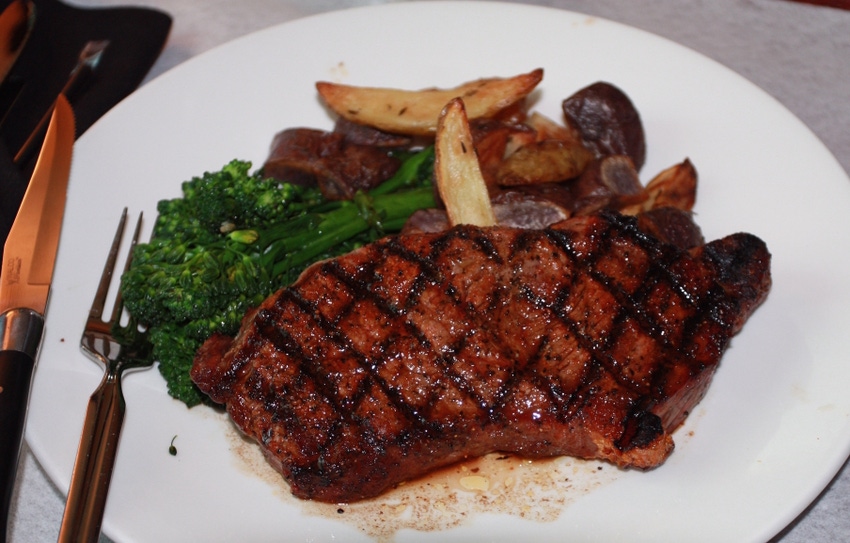Consumers are ready to break records in meat consumption in 2018.
January 4, 2018

Finally, a resolution we can all keep — eat more meat in 2018!
As reported by Megan Derision and Shruti Singh for Bloomberg, Americans are set to eat a record amount of meat in 2018.
According to the article, “The average consumer will eat 222.2 pounds of red meat and poultry this year, according to the USDA, surpassing a record set in 2004. Meanwhile, domestic production will surpass 100 billion pounds for the first time, as livestock owners expand their herds on the back of cheap feed grain.”
READ: Americans will eat a record amount of meat in 2018
This is great news considering the hype surrounding alternative proteins and test-tube meat, but what are the factors contributing to this rise in consumption, especially considering per-capita consumption of meat and poultry dropped by 9% between 2007 and 2014?
For starters, given recent studies touting the benefits of animal proteins and fats, many Americans are ditching carbs in favor of meat, eggs and dairy. For example, “A study recently published in the American Heart Association journal, Circulation, has found that a low-carb diet was better than a low-fat diet at reducing people’s body fat – even if the weight they lost was minimal. The study used MRI imaging technology to observe changes in organ fat distribution, and concluded that a Mediterranean, low carb (Med/LC) diet, along with moderate exercise, reduced the amount of some fat deposits – even if the scale barely budged.”
READ: A low carb diet helps shed body fat, even if you don’t lose weight
With this information now more widely accepted, folks are including more protein in each meal. According to Bloomberg, “While the government recommends that adults eat 5 to 6.5 ounces of protein daily, the USDA forecasts the average person will down almost 10 ounces of meat and poultry each day in 2018.”
Another factor contributing to the rise in consumption is cheaper meat prices compared to the 2014 peak. However, Bloomberg warns consumers that meat prices could rebound given the soaring U.S. meat export market.
Plus, with the economy improving and employment levels increasing, consumer confidence is elevated, spending may be more robust and there could be further growth in beef demand in 2018.
READ: Employment outlook for 2018
So even as talk of cultured burgers continue to make headlines, the good news is as consumer confidence grows, they want more protein, and I highly doubt fake meat will overtake the great taste and satisfaction of a steak or burger at dinner time.
The opinions of Amanda Radke are not necessarily those of beefmagazine.com or Farm Progress.
About the Author(s)
You May Also Like





